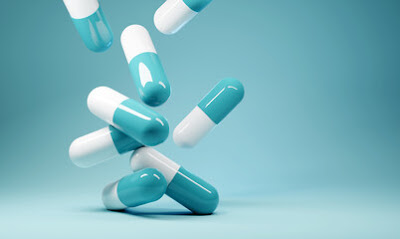Modification of medication action:
- Caffeine may increase the toxic effect of theophylline, methylphenidate (Nervousness, tremor, Insomnia)
- Tyramine, Dopamine or other vasoconstrictor in food enhance toxic effect of MAO inhibitor such as tranylcypromine (Hypertensive crisis which can be fatal)
Counteract with effect of drug:
- Vit K aids in production of clotting factors opposite to Warfarin.
- Caffeine is a stimulant which counteract the anti-anxiety effect of benzodiazepine.
- Immunosuppressant effect of drug like Azathioprine (Imuran) , cyclosporine (NE oral) may be blunted by immunostimulatory properties of natural products such as saw palmetto, echinacea.
- High fat diet counteracts the effect of anti-hyperlipidemic drug such as atorvastatin, fenofibrate, pravastatin.
Appetite changes:
- Cyproheptadine hydrochloride (periaxin) anti-histamine lead to marked increase in appetite.
- Anti-anxiety ( Diazepam, Alprazolam) lead to hyperphagia and excessive eating.
- Selective serotonin receptor inhibitor class of anti-depressant cause anorexia and weight loss.
- Amphetamine (CNS stimulant) have effect of decrease desire for food which lead to weight loss Child taking amphetamine shows doze dependent growth retardation.
Taste and smell changes:
- Tricyclic anti-depressant Amitriptyline impair salivary flow, causing dry mouth along with sour or metallic taste.
- Clarithromycin secreted into saliva causing bitter taste.
- Tetracycline suppress natural oral bacteria result in oral yeast overgrowth or candidiasis.
- Metronidazole may cause impaired sense of taste by causing metallic taste.
- Anti-neoplastic drug may cause stomatitis, glossitis or esophagitis.
Gastrointestinal effect:
- NSAIDs such as aspirin, ibuprofen, naproxen cause stomach irritation, sometime irritation so severe as to cause serious gastric bleeding
- Anti-cholinergic medication (anti-psychotic, anti-histamine, anti-depressant) slow peristalsis resulting in constipation.
- Ciprofloxacin allow for overgrowth of clostridium diffilcle result in pseudomembranous colitis.
How does medication and therapy effect nutrition?
What are the effect of drug on food interaction?






.png)



0 Comments
please do not enter spam link in the comment box.